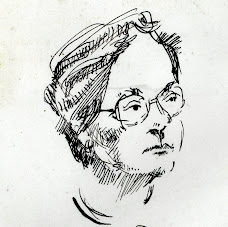I've been much too silent for the last month, and not because I haven't been watching anything. So I'll be doing some catch-up posting, not necessarily in the order films were seen. If you haven't seen The Graduate (1967), there are spoilers in the following post.
My college years were characterized by a lack of disposable income, so there are several iconic films from that time that I didn't see until much later, or not at all. So when I recently decided to have a little Dustin Hoffman Festival, the first film I needed to see was The Graduate. The film was released just before Christmas of 1967; my memory is that by the following summer, a lot of people had seen and were quoting it, and Mrs. Robinson was still being played on the radio a lot.
As I'm now firmly in the older generation, I viewed this film quite differently than I might have 40+ years ago. What I first noticed was how one-dimensional all the over-30 characters were, even the famed Mrs. Robinson, played by Anne Bancroft. I don't think it was Bancroft's fault, it was what she was given to work with by the screenwriters and, originally, the novelist Charles Webb. (The novel is said to be autobiographical at least in part.) While I didn't live in Pasadena, I knew a lot of my friends' parents of the age and class of the Braddocks and Robinsons and their neighbors. While they had their flaws and foibles, none were as uniformly awful as the film's characters. Yet, would I have seen these characters as realistic portrayals when I was 19 or 20? Perhaps.
On thing I can't fault is Dustin Hoffman's playing of Benjamin Braddock. (It's rather amazing that Hoffman was already 30 when he did this role.) Braddock is a young man who has, up till now, done everything perfectly -- he probably skipped a grade in school, and has won prizes for academics, athletics, and extra-curricular activities. He speaks politely to his elders and puts on a coat and tie to go anywhere but the backyard pool. For most of the film, he is more like a member of the "Silent Generation" of the 50s than of his own. In short, he's a young man who does what he's told by his elders -- even when the elder is seducing him. Hoffman portrays the naïveté and confusion of the character so perfectly that it's hard to believe this was his first major film role.
One would get very little idea of campus or off-campus life in 1967 from this film. The only mention of student protests comes when Buck Henry (one of the screenwriters, also playing the room clerk in Hoffman's Berkeley rooming house) says, "You're not one of those outside agitators, are you? I hate them!" Ben is worried about his future, but apparently not about the draft, and I've already mentioned his (and Katherine Ross's) clothing and general demeanor. It's all a lot more believable if one takes it as being set in 1963, when Webb's novel came out. And yet, the film became part of the consciousness of a generation, even of those who never saw it.
Partly, of course, that's down to the soundtrack, which makes use of three songs by Simon & Garfunkel. Two of the songs, Sounds of Silence and Scarborough Fair (Parsley, Sage, Rosemary and Thyme) were already well known to most young people. My roommate brought the album to our freshman year in college and it could probably have been heard on any dorm floor in any college sometime in the '66-'67 school year. Mrs. Robinson evidently was suggested by the film, though I've always felt the lyrics were evidence that Paul Simon felt Mrs. Robinson belonged in an institution (and I wouldn't disagree).
I had a hard time completely believing in the romance between Ben Braddock and Elaine Robinson (Katherine Ross). The ups and downs and ups seemed to come too fast -- although, in true California fashion, visual signifiers of the passage of time are absent from this film. How long did Ben's affair with Mrs. Robinson last, anyway -- days, weeks, months? The other odd thing about the characters of Ben and Elaine is their friendlessness. At an age when most young people are still traveling in packs, regardless of romantic attachments, Ben has no other young people to hang out with; it appears that all the guests at his graduation party are his parents' age. Elaine seems similarly alone. All the other young people we see -- Carl Smith, Elaine's "other" fiancé, his fraternity brothers, and the other residents of Ben's Berkeley rooming house -- are simply fresher-faced versions of the elder Braddocks and Robinsons and just as unsympathetic, leaving Ben and Elaine alone against the world. And that's what makes it so ominous when the final scene, which "should" be happy as Ben and Elaine escape her wedding on a city bus, is once again scored with Sounds of Silence, and the pair stare straight ahead instead of gazing at each other.
In summary, I still have my doubts about the story line and several aspects of the plot. I realize I've hardly even mentioned Anne Bancroft, and that's probably because she played her part as the despicable Mrs. Robinson so well. Her, and Hoffman's, acting, and the direction of Mike Nichols (who, as part of Nichols and May, got his start with 50s neurotics, after all) redeemed a story that, closely examined, doesn't really hold up. I would recommend you see this movie if you haven't, and perhaps if you haven't seen it for 40 years you should take another look.
Subscribe to:
Post Comments (Atom)


No comments:
Post a Comment